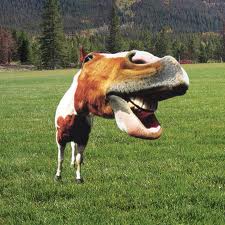There is not another animal in the world that has contributed more to the expansion of civilization and culture than the horse. Some of the earliest known domesticated
horses were found in Russia, around 6,000 years ago and were thought to have
been domesticated by the Celts. Horses have even been found entombed with
Egyptian Pharaohs in the pyramids and were known to be owned only by the rich.
Since being domesticated, the horse has been put to work hunting, sports,
pulling chariots, wagons, and plows; which allowed for more work to get done in
the fields in a fraction of the time it would have normally taken, and also
allowed for greater distances to be travelled while carrying goods for trade.
This extra time gave more room for hobbies, crafts, and music to work their way
into cultures and for each of those cultures to become more unique and
personalized.
Once man realized the power and potentials of the horse, civilizations
were moving westward at a rapid pace and horses were being used for military
purposes to conquer new lands along the way. All of this expansion west wouldn’t
have been nearly as achievable without the horse which soon let to the discovery
of America. Domesticated horses were brought over on ships and wild horses were
being caught to be domesticated and sold to farmers. Soon, the first roads were
being paved for the horse drawn carriages, which also led to a speedy growth of
the railroad stretching from coast to coast. Within a short time, America was flourishing and growing faster than ever before and soon the horse became a symbol of American freedom and independence since almost every family owned a horse and relied on that horse to provide for their families.
To own a horse in today’s society is somewhat rare, most are just used for sport
and pleasure similar to rodeos and racing for gambling purposes. Although there
are still some cowboys and cattle farmers today who use them to rope and catch
young cattle, check fences, and to round up herds. Growing up, I was lucky
enough to be a part of one of these families and was able to learn about how
loving and understanding a horse could be, and how good of a companion a horse
must have made for the cowboys out west during the cattle driving days. We still
have horses today, but it seems that a lot of the younger generations are losing
their interest in riding and the love for the animal is quickly fading. This
seems to be leaving horses to just be seen in fairytales and in western movies as
technology has now taken their place, and for many families it has simply become
too expensive to board and/or feed the animals.
horses were found in Russia, around 6,000 years ago and were thought to have
been domesticated by the Celts. Horses have even been found entombed with
Egyptian Pharaohs in the pyramids and were known to be owned only by the rich.
Since being domesticated, the horse has been put to work hunting, sports,
pulling chariots, wagons, and plows; which allowed for more work to get done in
the fields in a fraction of the time it would have normally taken, and also
allowed for greater distances to be travelled while carrying goods for trade.
This extra time gave more room for hobbies, crafts, and music to work their way
into cultures and for each of those cultures to become more unique and
personalized.
Once man realized the power and potentials of the horse, civilizations
were moving westward at a rapid pace and horses were being used for military
purposes to conquer new lands along the way. All of this expansion west wouldn’t
have been nearly as achievable without the horse which soon let to the discovery
of America. Domesticated horses were brought over on ships and wild horses were
being caught to be domesticated and sold to farmers. Soon, the first roads were
being paved for the horse drawn carriages, which also led to a speedy growth of
the railroad stretching from coast to coast. Within a short time, America was flourishing and growing faster than ever before and soon the horse became a symbol of American freedom and independence since almost every family owned a horse and relied on that horse to provide for their families.
To own a horse in today’s society is somewhat rare, most are just used for sport
and pleasure similar to rodeos and racing for gambling purposes. Although there
are still some cowboys and cattle farmers today who use them to rope and catch
young cattle, check fences, and to round up herds. Growing up, I was lucky
enough to be a part of one of these families and was able to learn about how
loving and understanding a horse could be, and how good of a companion a horse
must have made for the cowboys out west during the cattle driving days. We still
have horses today, but it seems that a lot of the younger generations are losing
their interest in riding and the love for the animal is quickly fading. This
seems to be leaving horses to just be seen in fairytales and in western movies as
technology has now taken their place, and for many families it has simply become
too expensive to board and/or feed the animals.

 RSS Feed
RSS Feed